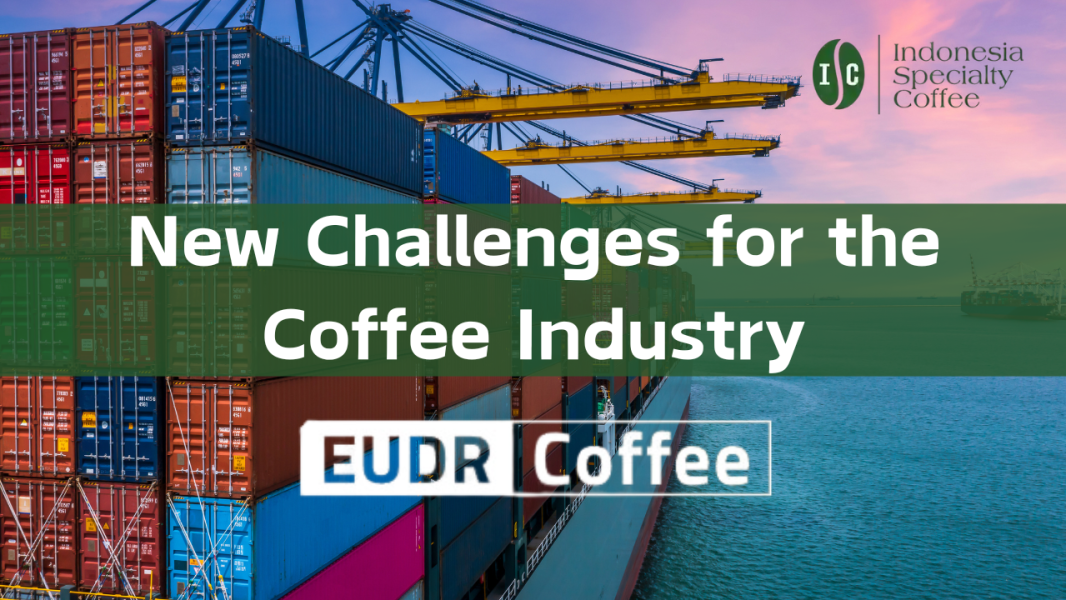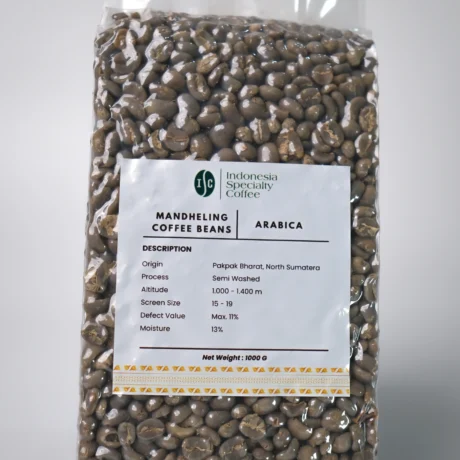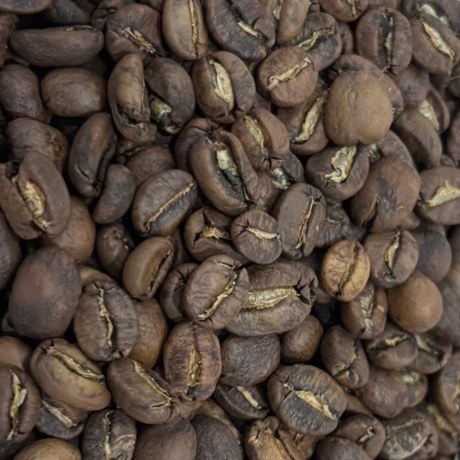The European Union Deforestation-free Regulation (EUDR), which officially came into force on June 29, 2023, and is set for full implementation on December 30, 2024, has introduced significant changes to the coffee industry. While the regulation aims to combat deforestation and forest degradation linked to various commodities, including coffee, it has quietly introduced a host of new challenges for coffee producers. These regulations have made the path to selling coffee more intricate and demanding, presenting a mix of hurdles that are reshaping the industry. This article explores how the EUDR subtly complicates the coffee business, pushing producers to adapt to a rapidly evolving market.
Table of Contents
Understanding EUDR
Deforestation and Forest Degradation
To comprehend the impact of the EUDR on the coffee industry, it’s essential to understand the key terms it addresses:
Deforestation: This refers to the permanent removal of forests or trees from an area, typically for agricultural expansion, logging, or infrastructure development. Coffee production, when it involves clearing forests to create new plantations, contributes to deforestation. This not only disrupts ecosystems but also leads to significant biodiversity loss.
Forest Degradation: This involves the deterioration of forest quality due to human activities such as selective logging, habitat fragmentation, and other processes that compromise a forest’s ecological integrity. Unsustainable coffee farming practices can cause soil erosion, water pollution, and habitat fragmentation, all of which contribute to forest degradation.
The EUDR’s focus on these issues means that coffee producers must now ensure their operations do not contribute to deforestation or forest degradation, adding a layer of complexity to their business practices.
Implicit Challenges for Coffee Producers
Land Use Pressure
Coffee cultivation often finds itself in competition with natural forests for land use. As the demand for coffee grows, there is a subtle but significant pressure on producers to expand their plantations. This expansion frequently comes at the cost of clearing forested areas, leading to deforestation. Balancing the need for increased coffee production with the imperative to conserve forests becomes a delicate and challenging task for producers under the EUDR.
Smallholder Farmers
A substantial portion of coffee is produced by smallholder farmers who operate with limited resources. For these farmers, the financial burden of adopting sustainable practices can be overwhelming. Implementing the necessary changes to comply with EUDR regulations often requires investments that are difficult for smallholders to afford. This financial strain is an implicit challenge, as it complicates their ability to remain competitive in the market while adhering to the new regulations.
Supply Chain Complexity
The coffee supply chain is notoriously intricate, involving multiple intermediaries from the farm to the final consumer. Ensuring that each step of this complex chain complies with EUDR regulations is a subtle yet formidable challenge. Producers must establish transparency and traceability, tracking the journey of coffee beans from their origin to the market. This requires a coordinated effort and robust record-keeping, which can be daunting in practice.
Market Demand and Price Pressure
Consumers are increasingly demanding sustainable coffee, but meeting this demand while maintaining competitive prices poses a hidden challenge. EUDR compliance often incurs additional costs, from sustainable farming practices to certification processes. These costs can impact the profitability of coffee producers, who must navigate the tension between satisfying consumer expectations for eco-friendly products and keeping prices attractive.
Education and Awareness
There is a growing need for coffee producers to be educated about sustainable practices and the specific requirements of the EUDR. However, this need for education represents an implicit challenge. Providing adequate information and raising awareness about the benefits of deforestation-free coffee can be resource-intensive. Producers must be informed and motivated to adopt new practices, which requires a concerted effort in training and outreach programs.
Navigating Compliance and Certification
Supply Chain Transparency
One of the critical requirements under the EUDR is ensuring transparency throughout the coffee supply chain. Producers need to trace the origin of their beans meticulously, guaranteeing they come from sustainable sources. This transparency is essential but involves behind-the-scenes efforts to maintain detailed records and documentation. Traders must also keep thorough records that map the journey of coffee from the farm to the market, a task that demands significant administrative work and attention to detail.
Certification Programs
Certifications such as Rainforest Alliance, Fair Trade, and UTZ play a pivotal role in helping coffee producers demonstrate their adherence to sustainable practices. These certification programs provide a framework for verifying that coffee production is deforestation-free. However, achieving and maintaining these certifications involves a series of rigorous processes and audits that are not always visible to the consumer. The effort and resources required to comply with these programs can be substantial, particularly for smaller producers.
Audits and Verification
Independent audits are a cornerstone of ensuring compliance with EUDR requirements. These audits verify that coffee production meets the stringent standards set by the regulation. While audits are critical for maintaining credibility and trust, they also introduce an additional layer of complexity and expense for coffee producers. The process of preparing for and undergoing audits requires meticulous preparation and can be a significant burden, especially for those with limited resources.
Positive Changes with Hidden Challenges
Sustainable Practices and Innovation
The EUDR has prompted coffee farms to adopt more sustainable practices, such as agroforestry systems. Integrating coffee cultivation with native trees enhances biodiversity, reduces soil erosion, and sequesters carbon. While these practices are beneficial, the transition to such systems involves significant changes in farming methods and investment in new infrastructure. The hidden challenge lies in managing these transitions smoothly while maintaining productivity and profitability.
Certified Coffee
As more coffee producers seek certifications like Rainforest Alliance and Fair Trade, the market sees an increase in certified coffee products. These certifications ensure that producers adhere to sustainable standards, which is increasingly important to consumers. However, the process of obtaining certification is demanding and resource-intensive, involving comprehensive changes in farming practices and continuous compliance with strict standards. This requirement can be particularly challenging for smallholder farmers.
Consumer Awareness
Educated consumers now play a significant role in shaping market dynamics. Their demand for deforestation-free coffee drives producers to adopt sustainable practices. However, raising consumer awareness and educating them about the importance of deforestation-free coffee requires sustained efforts and resources. Awareness campaigns and eco-friendly branding are essential but involve hidden costs and strategic planning to be effective.
Collaboration and Research
Industry stakeholders are collaborating more on research and best practices, driven by the EUDR’s requirements. Innovations in coffee processing and waste reduction are emerging as part of these efforts. While collaboration brings positive changes, it also requires coordination, shared resources, and investment in research and development. These behind-the-scenes efforts are crucial but often underappreciated in the broader market context.
Consumer Awareness and Demand
Informed Consumers
The role of informed consumers is crucial in driving the demand for deforestation-free coffee. Awareness campaigns help highlight the environmental impact of coffee production, encouraging responsible choices. However, creating and maintaining these campaigns necessitates ongoing efforts and investments that are not immediately visible but are vital for sustaining consumer interest and support.
Certification Labels
Labels such as Rainforest Alliance, Fair Trade, and Organic indicate that coffee is produced following sustainable practices. These labels are highly sought after by consumers who prioritize environmental responsibility. The challenge lies in ensuring that these certifications are obtained and maintained, which requires continuous adherence to rigorous standards and regular verification processes.
Market Influence
Consumer preferences subtly shape market dynamics, pushing producers to adopt eco-friendly practices. This quiet revolution in consumer behavior encourages producers to align with sustainable practices. However, responding to these market shifts involves behind-the-scenes adjustments in production methods, supply chain management, and marketing strategies.
Retail and Cafés
Retailers and coffee shops play a pivotal role in promoting certified coffee. By offering deforestation-free options, they encourage consumer support and drive demand for sustainable products. The promotion and endorsement of certified coffee require strategic planning, marketing efforts, and sometimes restructuring of supply chains to ensure consistent availability of certified products.
Unseen Challenges Ahead
Balancing Profitability and Sustainability
Navigating the increased costs associated with EUDR compliance while ensuring profitability is a delicate balance. Producers must manage the financial strain of adopting sustainable practices and obtaining certifications. This quiet struggle involves making strategic decisions to maintain economic viability without compromising on sustainability commitments.
Global Supply Chain Complexity
Coordinating efforts across diverse regions and stakeholders in the global coffee supply chain adds a layer of understated complexity. Effective collaboration and streamlined processes are necessary to ensure compliance with EUDR standards. These behind-the-scenes efforts are essential for maintaining a smooth and compliant supply chain.
Education and Capacity Building
Supporting smallholder farmers in adopting sustainable practices is crucial. Providing resources, training, and capacity-building initiatives empower producers to meet EUDR standards. However, these efforts require significant investment and coordination, often going unnoticed but playing a vital role in achieving compliance.
Monitoring and Enforcement
Robust monitoring and effective enforcement mechanisms are critical to ensure ongoing compliance and prevent fraud. These unseen guardians of the regulation involve continuous oversight, audits, and verification processes to maintain the integrity of the coffee supply chain. Ensuring that these mechanisms are in place and functioning effectively is a quiet yet essential challenge.
Conclusion
The EUDR introduces both challenges and opportunities for the coffee industry. By fostering collaboration, innovation, and consumer awareness, the sector can navigate these new complexities and work towards a more sustainable, deforestation-free future. The path forward requires a collective effort, strategic planning, and a commitment to balancing profitability with environmental responsibility. The vision for a sustainable coffee industry is clear, but the journey involves overcoming subtle and significant challenges that shape the industry’s landscape. Check their website for more details on how to apply for the EUDR for Coffee here.





